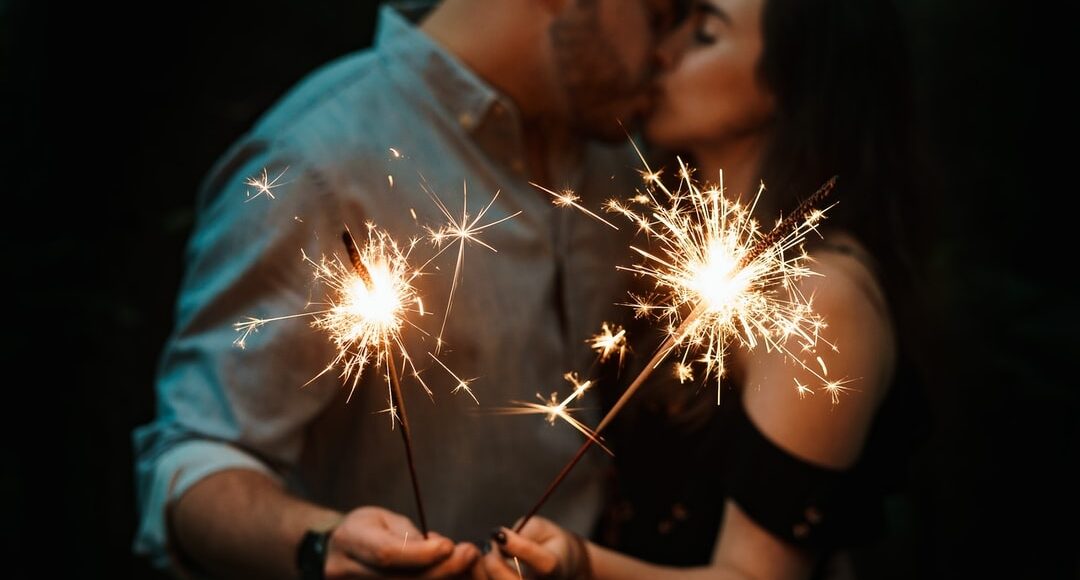Can’t you see that you’re smothering me?
Wanting less closeness in a romantic relationship is a real thing that most of us can understand. Just take a look at lyrics across genres airing sentiments of needing space and wanting more independence. Psychological research aligns, finding that we do, in fact, have a common understanding of what it means to want less closeness (Mashek et al., 2011). We realize that it includes things like wanting more independence, time away from the partner, and the prioritization of individual interests and goals. And it turns out that merely being primed with words like “trapped,” “smothered,” and “freedom” can induce the desire for less closeness, especially for those with avoidant attachment (Mashek et al., 2011).

In addition to our shared understanding regarding less closeness, there also seems to be a shared fear that being too close with your partner will kill the spark. Given the prevalence of comedy skits joking that marriage is the graveyard of what was once a passionate, exciting love, there seems to be a universal feeling that as you get to know someone and spend more time with them, the sense of excitement, intrigue, and mystery can diminish.
So… Is closeness something worth fearing? Does too much closeness leave us feeling, well, like we want to leave?
In general, closeness has been found to be a good thing(!), with many health and relational benefits. It’s important to keep in mind that different people have different closeness needs. Some want more, and others want less (Pusch et al., 2022). And that’s ok! Regardless of how much closeness you actually have in your relationship, the closer (lol) your actual amount of closeness is to your desired amount, the better it is for your relationship quality, mental health, and likelihood of breaking up (Frost et al., 2013). And if your partner’s closeness needs are not being met (in that they don’t have as much as they would like), that can harm both of your relational well-being (Pusch et al., 2022).

And if you’re worried that getting too close will ruin the magic, rest easy! Closeness isn’t a one way ticket to the marriage graveyard. Research shows that closeness does not necessarily stifle romance. High closeness when combined with “otherness” (the sense that you and your partner are two distinct people who can still be surprised by one another) is conducive to a passionate relationship in which you and your partner continue to desire one another and can keep the initial spark alive (Muise et al., 2023).

Related to the concept of otherness, it’s been found that those close to us are surprisingly good at guessing how we spend our time. However, results show that we don’t know our loved ones as well as we know ourselves in every area of life (Vazire & Mehl, 2008). In other words, your partner may know that you spend four and a half hours on the phone per day, but they’d be surprised to learn how much time you spend outside, amateur bird watching. Why is this relevant? Because if you hold onto this fact – the fact that you and your partner are distinct individuals with separate lives and more to learn about one another – then you’ll be on the right track to having a passionate AND close relationship.

So the next time you hear Boygenius’s “I might like you less now that I know you so well,” remind yourself that it doesn’t take a genius to be content in their romantic relationship. Just try to meet your and your partner’s desired levels of closeness while keeping in mind that you’re still individuals, and you’ll be on your way to success.
Frost, D. M., & Forrester, C. (2013). Closeness Discrepancies in Romantic Relationships: Implications for Relational Well-Being, Stability, and Mental Health. Personality and Social Psychology Bulletin, 39(4), 456-469. https://doi.org/10.1177/0146167213476896
Mashek, D., Le, B., Israel, K., & Aron, A. (2011) Wanting Less Closeness in Romantic Relationships, Basic and Applied Social Psychology, 33(4), 333-345. 10.1080/01973533.2011.614164
Muise, A., & Goss, S. (2024). Does Too Much Closeness Dampen Desire? On the Balance of Closeness and Otherness for the Maintenance of Sexual Desire in Romantic Relationships. Current Directions in Psychological Science, 33(1), 68-74. https://doi.org/10.1177/09637214231211542
Pusch, S., Neyer, F. J., & Hagemeyer, B. (2023). Closeness Discrepancies in Couple Relationships: A Dyadic Response Surface Analysis. Personality and Social Psychology Bulletin, 49(12), 1709-1722. https://doi.org/10.1177/01461672221113981
Vazire, S., & Mehl, M. (2008). Knowing Me, Knowing You: The Accuracy and Unique Predictive Validity of Self-Ratings and Other-Ratings of Daily Behavior. Journal of Personality and Social Psychology. 95. 1202-16. 10.1037/a0013314.

Awesome article, Priya! I am interested in your article’s discussion of how terms like “trapped” and “freedom” can affect a person’s need for intimacy, particularly in those who struggle with avoidant attachment. This implies that the dynamics of human relationships are shaped in part by language and psychological stimulation. Subsequent investigations may delve more into the ways in which distinct types of priming, including visual signals or storytelling, influence people’s conceptions of intimacy and their inclination to pursue or shun it in interpersonal connections. Gaining an understanding of these systems may provide insightful advice on how to improve romantic relationship communication and promote healthier connections.
Priya, this is such an engaging article! I’m interested in the article’s discussion of how terms like “trapped” and “freedom” can affect a person’s need for intimacy, particularly in those who struggle with avoidant attachment. This implies that the dynamics of human relationships are shaped in part by language and psychological stimulation. Subsequent investigations may delve more into the ways in which distinct types of priming, including visual signals or storytelling, influence people’s conceptions of intimacy and their inclination to pursue or shun it in interpersonal connections. Gaining an understanding of these systems may provide insightful advice on how to improve romantic relationship communication and promote healthier connections.
This was a really interesting and informative post! I was particularly fascinated by the distinction between closeness and otherness you highlighted, as I feel like this is definitely something that’s super important to understand for anyone in a relationship, whether romantic or platonic. I also really relate to the idea that having high closeness combined with high otherness is the key to a successful and healthy relationship, as I’ve personally learned this lesson myself with having close friends in the past that felt a little TOO close—which was due to low otherness in the relationship that made it feel stifling. I also really appreciate the graphic you provided to show the four possible categories, it really clarifies and solidifies your informative message.
I loved how you connected the findings back to song lyrics, and how they may or may not ring true regarding relationship research. I think the model you presented comparing high/low otherness/closeness really illuminates some of the complexities of maintaining a healthy relationship, and, like you said, it’s possible to have both a passionate and close relationship.
I would be interested in seeing these findings through a self-expansion lens, as that may be a way to both do something with your partner, but also grow your own indivdiual self-concepts.
I really like your take on closeness and specifically your focus at the end on otherness because I think people often look at relationship satisfaction and closeness without considering many other variables. It is very interesting to learn about the significant influence that “otherness” can have on relationships and definitely supports my previous assumption that individuality for both yourself and your partner is important to maintain a healthy relationship!
This is a super interesting article, Priya! It makes sense that partners who share a need for a similar amount of closeness seem to work out more than partners who want different amounts of closeness. I wonder how technology plays a role in all of this. For instance, physical closeness is nice for many couples, but what about when one of the partners is a much better texter than the other? Your article sparked my initial idea that maybe relationships also struggle with differences in one’s mindset when it comes to communicating via a smartphone.